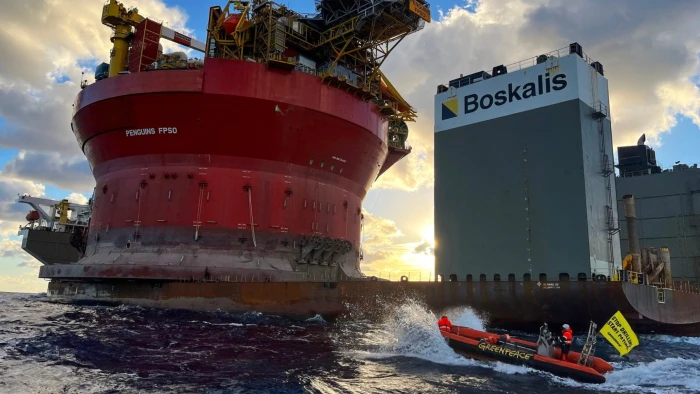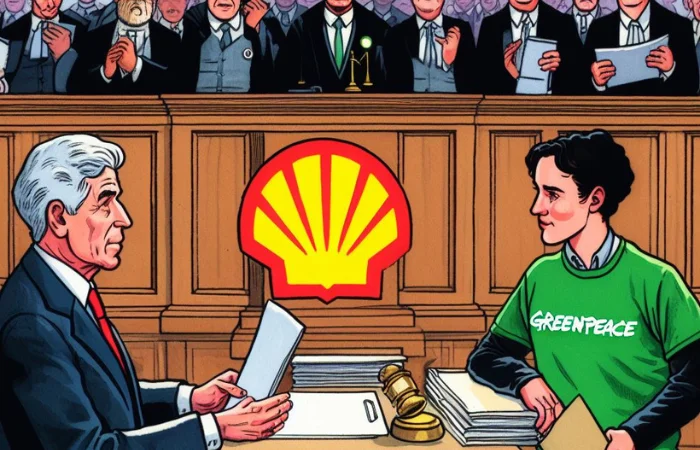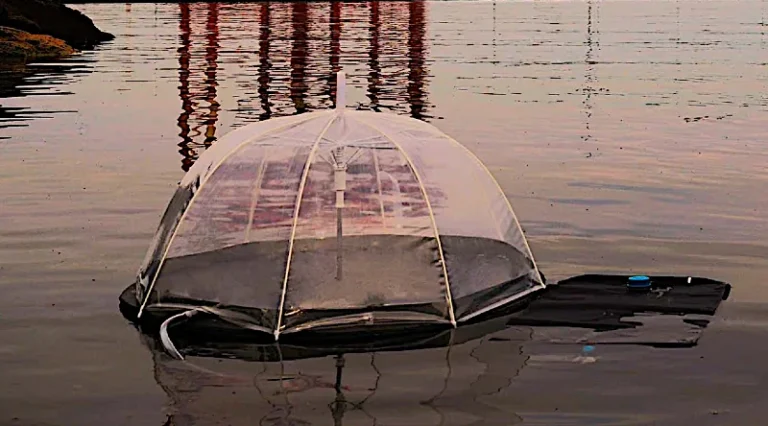In a notable legal confrontation, Shell has initiated a lawsuit against Greenpeace, demanding a substantial sum of at least $2.1 million. This action constitutes one of the largest financial claims ever brought against the environmental advocacy group. This lawsuit was prompted by an incident earlier this year when Greenpeace activists occupied a ship for 13 days.
The roots of this legal battle trace back to February, when six Greenpeace members boarded a vessel in the Atlantic Ocean. This ship was transporting a Shell floating production storage and offloading unit (FPSO) destined for the Penguins oil and gas field, located northeast of the Shetland Islands.
Greenpeace has described Shell’s claim and its accompanying request for the group to cease targeting Shell’s oil and gas assets as “one of the biggest legal threats” it has faced in its over fifty-year history of environmental campaigning. Areeba Hamid, Greenpeace UK’s co-executive director, has interpreted Shell’s actions as an attempt to impede Greenpeace’s campaigning efforts and to mute the group’s advocacy for climate justice.

Although Greenpeace has previously encountered legal claims following its protests, the magnitude of Shell’s claim is exceptional. Shell, in its defense, stated that while it respects the right to peaceful protest, such actions must adhere to safety and legal standards. After all, whether an environmental organization or not, trespassing is still trespassing and Shell itself would have been held liable for any injuries, damages, etc. by the trespassers.
The protest gained attention through video footage captured on January 31, showing Greenpeace activists braving rough seas in small boats to board the large FPSO. They used ropes to climb onto the deck, marking the start of their 13-day occupation.
Shell’s claim for damages includes the legal costs associated with securing two injunctions against the activists, as well as expenses for deploying an additional safety vessel and other related costs.
Shell argues that it and its contractors should be compensated for the considerable expenses incurred due to Greenpeace’s “dangerous actions.”
At the time, a Shell spokesperson said: “These actions are causing real safety concerns, with a number of people boarding a moving vessel in rough conditions. We respect the right of everyone to express their point of view. It’s essential they do that with their safety and that of others in mind.”
In 2022, Shell reported a record profit of $40 billion, positioning it as Europe’s largest oil producer and a leading entity on the FTSE 100.
After Shell and Fluor, the FPSO’s constructor, notified the defendants of their intention to pursue legal action in February, the court provided a window for out-of-court negotiations. During this period, Shell proposed to reduce its claim to $1.4 million, contingent upon Greenpeace committing to abstain from future protests at any Shell facility worldwide.

However, Shell’s lawyers cautioned that the claim could potentially increase to $6.5 million if Fluor, based in Texas, decided to seek additional compensation. Fluor hasn’t commented on this matter.
Greenpeace, in October, declined Shell’s offer, countering that it would only agree to desist from future protests if Shell adhered to a Dutch court ruling from 2021. This ruling mandated Shell to reduce its emissions by 45% by 2030, a decision which Shell is currently appealing.
Shell has reduced its oil production by approximately 20% since 2019 and is transitioning towards lower-carbon energy sources to gradually decrease its emissions.
However, the company, under its new CEO Wael Sawan, has faced criticism for allegedly slowing the pace of this transition. Sawan announced that oil production would remain stable until 2030 and that gas sales would continue to expand.
More To Discover
- Fiji Water: A Nightmarish, But Amusing (Thanks To Cleveland) Greenwashing Story
- Consumer Reports Uncovers Widespread Harmful Chemicals in Supermarket Foods, Including Top ‘Healthy’ Brands
- Panasonic’s Innovative Semi-Transparent Perovskite Solar Panels Look Like Windows or Walls
- Hot Rocks Could Be the End of Fossil Fuels: Bill Gates Certainly Thinks So

The Penguins oil field, operational since 2002, received approval from Shell in 2018 for a project extension. This redevelopment is expected to yield 45,000 barrels of oil equivalent per day once completed.
This legal tussle between Shell and Greenpeace not only highlights the ongoing conflict between environmental activists and fossil fuel companies but also underscores the increasing legal complexities and financial stakes involved in the global conversation about environmental protection and climate change.















